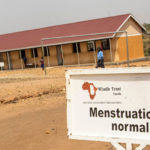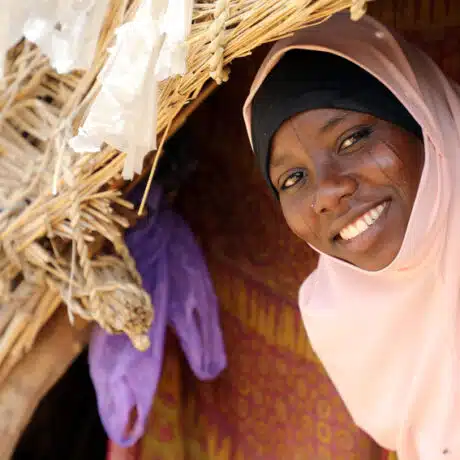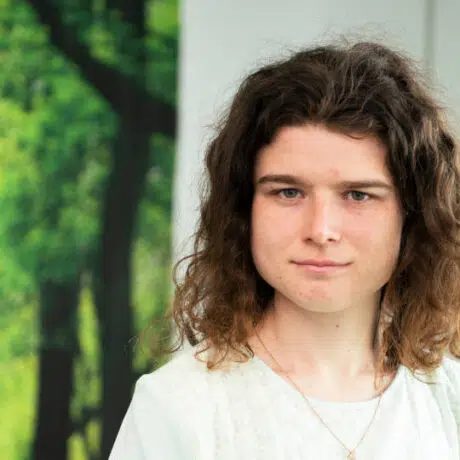News and Stories - Girls Rights - 12 May 2016
A right to the night Australian girls on their safety in public places
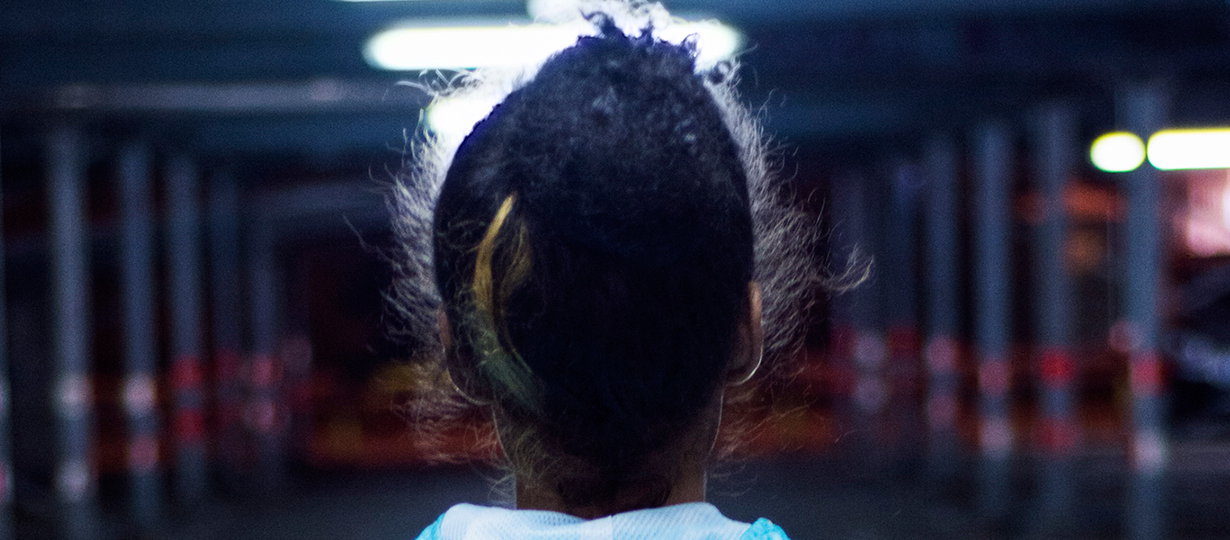
Survey finds one third Australian girls report not feeling safe in public places after dark.
A nationwide survey launched today reveals one third (30 percent) of young Australian women aged 15-19 report avoiding public places after dark, with approximately 23 percent believing it’s not safe to travel alone on public transport.
According to Plan International Australia and Our Watch who commissioned the survey, many young women think public spaces are unsafe for them, particularly after dark, despite statistics highlighting girls are more at risk of violence at home and at the hands of someone they know.
Young women also feel they need to change their own behaviour and stay at home in order to remain safe.
For example, despite survey respondents believing sexual harassment in public spaces is both a serious issue and never justified, 17 percent believe girls’ clothing choices make them at least partly responsible for unwanted attention or harassment.
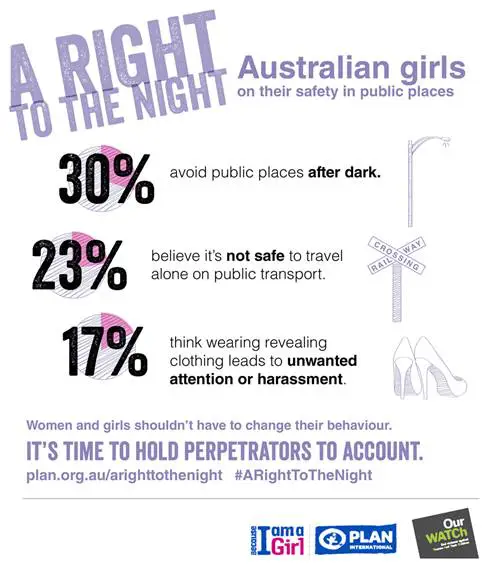
Making our cities safer
We asked participants what they wanted done to make our cities safer.
“Educate boys and girls on the issues. Teaching boys not to be offenders rather than telling girls not to go out at night [or] wear certain clothing.” Beth, aged 19.
“Educate boys, girls, parents and teachers about healthy, respectful relationships. Challenge everyday sexism.” Denise, aged 15.
“Provide safer transport for women who are travelling late at night and improve education for young women on how to avoid situations which are risky or dangerous. HOWEVER, I don’t think women should need these improvements because I believe males should be brought up to believe that females are equal and it is not okay to be violent towards them.” Laura, aged 18.
“No physical [solutions] will help until social attitudes change.” Maya, aged 18
Names have been changed to protect girls’ identities
How to make sure they get it
“The data tells us girls think the responsibility for violence or sexual harassment towards women and girls rests with them and not the perpetrators of the crimes. It’s disheartening that so many girls think they’re better off staying at home than doing things as simple as catching public transport on their own,” said Plan International Australia Deputy Chief Executive Officer, Susanne Legena.
“It’s not okay to ask “why was she out after dark?” or “what was she wearing?” as this lays blame on the victim and removes accountability from the perpetrators of harassment or violence,” said Our Watch Chief Executive Officer, Mary Barry.
“Women and girls should not have to modify their behaviour to avoid being targets of harassment and abuse. Perpetrators must learn that aggressive and disrespectful behaviour and harassment against women is unacceptable,”
“To stop this from happening in the first place we must focus on addressing the drivers of gender-based violence through promoting positive, equal and respectful relationships,”
Global research conducted by Plan International reveals girls feel similarly unsafe in cities in Ecuador, Pakistan, Nicaragua, Zimbabwe, Uganda, Peru, Vietnam and Egypt. Girls feel safer in Nicaragua than in Australia, with 23 percent believing they shouldn’t be outside after dark.
“It’s alarming that girls feel similarly unsafe in Australian cities as girls in countries with much higher rates of actual violence. This is a wakeup call for our federal and state governments, police and community leaders,” added Ms Legena.
The survey, conducted by Ipsos, interviewed 600 Australians girls and young women aged 15-19 from all states and territories. Results are published today in the report “A right to the night: Australian girls’ on their safety in public spaces” which can be downloaded from Plan


